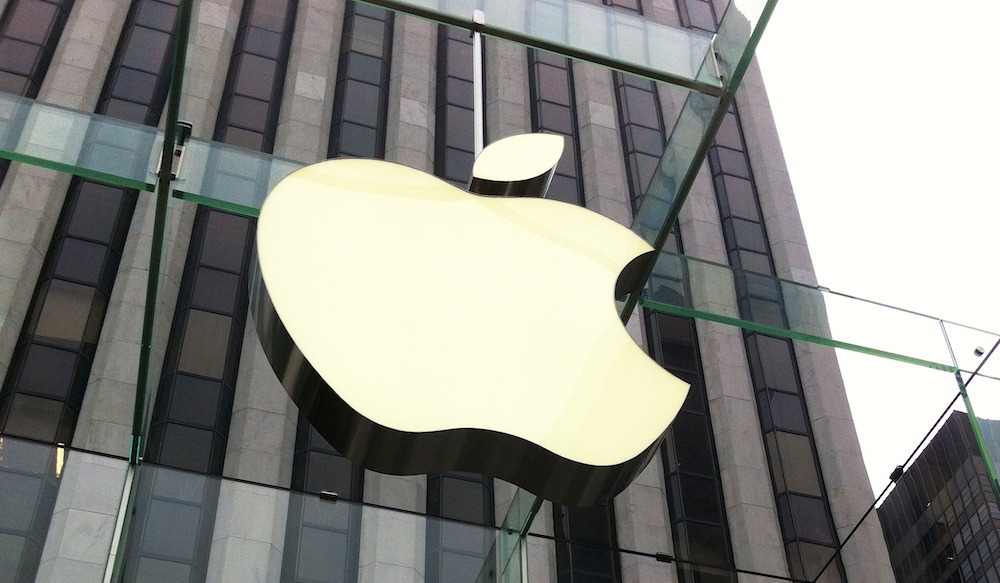Institutional ownership of Apple stock remained close to an all-time high of 5.5% as 2020 came to an end, though large organizations still underweigh the stock, investment bank Morgan Stanley says.
In a note to investors seen by AppleInsider, analyst Katy Huberty writes that institutional ownership of Apple stock was largely flat quarter-over-quarter exiting Q1 2021. Institutional ownership refers to large-scale organizations buying and holding shares of a company.
Huberty adds that Apple's weighting in the S&P 500 index remained "relatively stable" compared to the previous quarter at 6.7%. Because of that, the spread between Apple's S&P 500 weighting and its institutional ownership level was flat at 125 basis points. That's the widest margin since the third quarter of 2018.
The analyst believes that implies institutions are still underweight on AAPL shares, despite an 81% stock appreciation throughout 2020.
Huberty still believes that Apple is well-positioned to benefit from four different market trends. That includes the growth of 5G adoption for the iPhone; continued demand from remote education and work trends; the proliferation of wearable devices like the Apple Watch; and the increasing market share and monetization of services.
"In our view, these factors, combined with 140bps of gross margin tailwinds, 260bps of operating leverage, and over $80B of stock buybacks, will drive 22% revenue growth and 36% [earnings-per-share] growth in FY21," Huberty writes.
Over the longer-term, Huberty forecasts that Apple's ecosystem and services will sustain 10% annual revenue growth over the next five years — 200bps above Wall Street's prediction of 8% growth in three years.
Huberty attributes that to accelerating device device installed base growth, faster Services monetization, and Apple's expansion into new and adjacent markets.
The analyst maintains her 12-month AAPL price target of $164. It's based on a sum-of-the-parts model with a 6x enterprise value-to-sales (EV/Sales) multiple on Apple's product business and a 13.1x EV/Sales multiple on Services. That results in an implied 7.5x target 2022 EV/Sales multiple and a 34x target enterprise-value to free-cash-flow multiple.
Shares of AAPL are priced at $125.02 in intraday trading on Wednesday, down 0.67%.
 Mike Peterson
Mike Peterson







-m.jpg)






 Marko Zivkovic
Marko Zivkovic
 Christine McKee
Christine McKee
 Andrew Orr
Andrew Orr
 Andrew O'Hara
Andrew O'Hara
 William Gallagher
William Gallagher

 Mike Wuerthele
Mike Wuerthele
 Bon Adamson
Bon Adamson




-m.jpg)



7 Comments
Apple is still mainly known for selling iPhones, so I think big investors believe the smartphone market has little to no growth left. Apple continues to burn money on buybacks and doing that doesn't help revenue or profits. Imagine if Apple put $80B into purchasing streaming video content for Apple+. Apple would easily be a bigger streaming powerhouse than Netflix. Someone at Apple has decided that share buybacks are what investors want. I wonder if that's really the case.
I think the introduction of the M1 (and the series) is under-appreciated by analysts. These new in-house chips performance and mobility is attractive to business, and Apple will grow in that space, with a head-start on competitors.
The stock is very overvalued by all historic metrics. At their scale, you cannot simply pull off enough miracles to justify a price that assumes absolute perfection going forward and the types of earnings increases needed to support that price. However, on the next pullback, buyers will snap up shares, both institutional investors and retail investors. It is great for long haul, but its growth runway for the stock is spent for now.